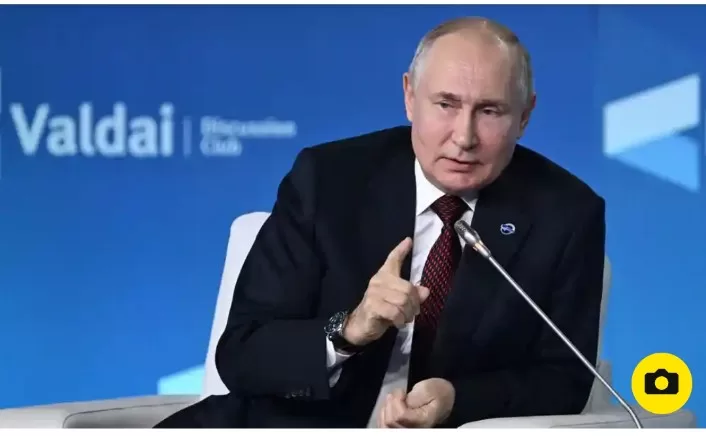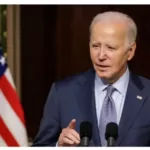Long-standing diplomatic relations between Israel and Russia, which were once characterized by warm overtures and cultural exchanges, now appear strained and fraught in the wake of one of the most devastating attacks on Israel in recent memory.
Israel’s Prime Minister, Benjamin Netanyahu, had consistently presented himself as a close friend of Russian President Vladimir Putin. In a memoir published during Russia’s conflict in Ukraine, Netanyahu had lavished praise on Putin’s intellect and his “particularly friendly attitude” toward the Jewish community.
In turn, Putin had presented himself as a loyal ally of Israel, fostering cultural connections and advocating for visa-free travel between the two nations.
However, in the aftermath of the severe Hamas attack on Israel, this much-vaunted friendship has seemingly eroded.
Four days following the initiation of Hamas’s unexpected assault, Putin has yet to reach out to Netanyahu, and the Kremlin has refrained from expressing condolences—a customary diplomatic gesture extended to world leaders in the aftermath of significant incidents on their soil.
In his initial comments on the Hamas incursion, Putin assigned blame to the United States, contending that the outbreak of violence between Israel and the Palestinians underscored the failure of U.S. policy in the Middle East, all while failing to acknowledge the gruesome loss of life in Israel.
This shift in tone indicates a broader rift between the two countries, one that has been evolving since the commencement of the war in Ukraine.
Over the years, Putin had endeavored to forge a strong rapport with Israel, all the while supporting the Palestinian cause—an alliance rooted in the Soviet era.
Russia’s intricate diplomacy with Israel seemed to bear fruit when Israel abstained from participating in Western sanctions against Russia, a move that drew criticism from Kyiv, which accused Israel of disregarding the suffering of Ukrainian Jews.
Beneath the surface, tensions were brewing, stemming from Putin’s assertion that he was combatting “neo-Nazism” in Ukraine while steering his nation closer to Iran, a longstanding adversary of Israel.
According to Pinchas Goldschmidt, who served as Moscow’s chief rabbi for nearly three decades before departing the country due to his opposition to the Ukraine war, “The warm relationship [between Russia and Israel] that we have seen for years under Putin has cooled down. We are in a different world now.”
He also pointed out that Israel had been cautious in preserving an amicable relationship with Moscow, considering Russia’s sizable Jewish community and its sway over Syria.
Tensions between the two nations had begun surfacing in the public sphere, particularly when Russian officials accused Israel of backing the “neo-Nazi regime” in Kyiv. The dispute was ignited when Russia’s foreign minister, Sergei Lavrov, echoed an antisemitic conspiracy theory suggesting that Adolf Hitler “had Jewish blood.” Israel reacted strongly, describing these comments as “unforgivable and outrageous.”
The Kremlin took measures against the Russian branch of the Jewish Agency, a private charity closely associated with the Israeli government, which facilitated the immigration of tens of thousands of highly skilled Jewish Russians to Israel.
More disconcerting for Israel was Russia’s growing reliance on Iran. Russia, cut off from Western markets, invested significantly in procuring Iranian suicide drones for attacks on Ukrainian cities and civilian infrastructure. The United States raised concerns about Iran’s acquisition of Russian attack helicopters, warplanes, and air defense systems.
As the United States pledged military aid to Israel in response to the Hamas attack, some pro-Kremlin commentators expressed hope that the Israeli-Hamas conflict would divert Western resources from Ukraine.
Russia displayed a degree of satisfaction over Israeli military and intelligence mistakes, using them to underscore perceived Western vulnerability.
Russian state television commentators ridiculed the tens of thousands of Russian Jews who emigrated to Israel to avoid conscription following Russia’s invasion of Ukraine.
In a speech alongside NATO Secretary General Jens Stoltenberg, Ukraine’s President Volodymyr Zelenskiy likened Hamas’s attack on Israel to Russia’s invasion of Ukraine. He expressed solidarity with Israel, emphasizing the common understanding of suffering from terror attacks.
While the rift between Israel and Russia deepens, Ukraine appears eager to fill the void left by Russia and is actively reaching out to Israel.







